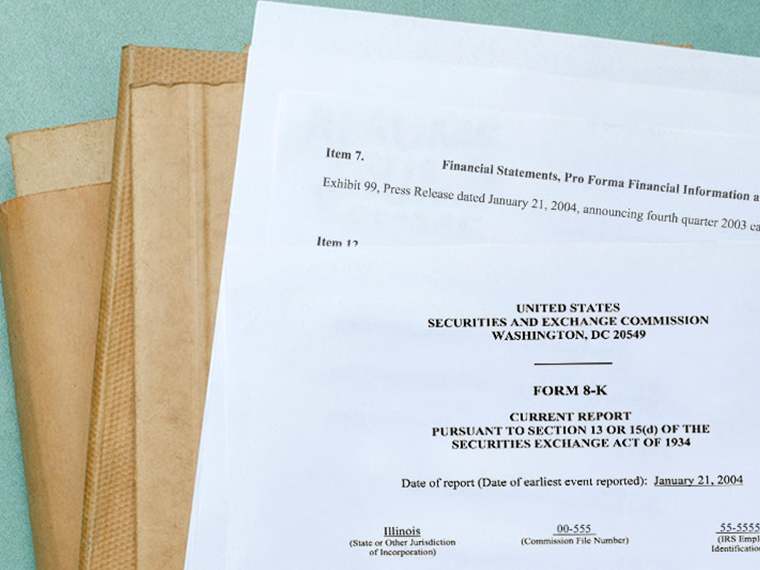Buyers of private firms signal willingness to move fast
What could merger and acquisition pros advising clients eager to buy a private company possibly have in common with the proverbial pajama-clad collectibles dealer, glued to his laptop and eager to sell more stuff on eBay?
A pricing strategy that leaves some money on the table but gets a deal done faster.
In a working paper, UCLA Anderson’s Tingyu Du, a Ph.D. student, and Marvin B. Lieberman analyzed more than 11,000 M&A deals valued between $800,000 and $1 billion that either closed or were withdrawn between 1981 and 2017.
Opt In to the Review Monthly Email Update.
Given the varying size of deals, they needed to first settle on what constitutes a round bid. They sorted bids by their largest round increment ($10 million, $5 million, $1 million, $500,000 or $100,000) and then divided that by the total value of the offer. They deemed any round increment that was greater than 2% constituted a rounded number.
Du and Lieberman found that for nearly half of the deals in which the acquirer was offering all cash for a private business, the initial bid was a round number. Just 6% of cash offers for publicly traded companies were round numbers.
Du and Lieberman posit that one reason for that disparity is that bidders for private companies are flying a bit blind in terms of detailed financial data, given there’s no required disclosure. For the private bidder, the round number — assumed to be rounded up, not down — may be a nod to the target that the bidder knows it’s at an information disadvantage. That’s not going to be as prevalent an issue when bidding on a publicly traded company that must abide by Securities & Exchange Commission reporting and disclosure rules and whose share price is a real-time valuation to work off.
Price Isn’t the Only Cost
Du and Lieberman suggest even though the round-number bid approach can be costly, it seems to follow the same logic collectible sellers on eBay often rely on to close deals.
While classic deal analysis based on final price would suggest that a round-number bid is suboptimal, Du and Lieberman’s research serves up a potential strategic explanation: “Round numbers are often chosen as a signal by impatient bidders who are willing to take a slight drive up of price to secure a timely purchase and as a preemptive move to prevent competing bidders from entering.”
Or, in the case of the eBay seller, to signal a willingness to negotiate on the downside. A 2019 paper in the Journal of Political Economy found that eBay sellers open to bargaining typically listed an initial round-dollar price that ultimately led to selling for less than if they had instead used a more precise opening offer price when using the “best offer” bargaining platform.
Sellers on eBay, whose initial list price was a multiple of $100, received offers that were 8% to 12% less than those listing goods at more precise prices. Costly misplay? Not exactly. Round-dollar listings were 15% to 25% more likely to actually sell. The round-dollar bid seems to serve as a “cheap talk” signal to potential buyers that the seller is motivated to make a deal and less likely to care about squeezing out every last dollar from the transaction.
It seems that the same motivation to get a deal done helps explain the popularity of round bids in the M&A world. Analysis by Du and Lieberman found that for private targets, the average time to complete a deal was 87 days, but when the initial bid was a round number, closing time was 11 days shorter.
Interestingly, though round bids are not as prevalent for publicly traded companies, their analysis suggests it can indeed speed things along there as well. The average 113 days to close cash deals was shortened by nearly 16 days when a round number was the initial volley.
Reaching the finish line faster may in part offset any incrementally higher initial bid to the extent it reduces the fees (think billable hours) collected by legal and other advisory intermediaries who feed off the M&A ecosystem as well as reduce the distraction factor for both acquiring and target staff.
Rounding Out the Competition
Potential acquirers are rarely confronted with a rival bidder. Among deals analyzed by Du and Lieberman, fewer than 14% of cash offers for a public company and under 4% of cash offers for private companies run into competitive bids. Even so, the round-dollar bid seems to serve as a deterrent. In their analysis, Du and Lieberman estimate a public company making a round bid is about 5 percentage points less likely to run into competition. Offers for private targets are also less likely to run into competition, though given the rarity of this occurring in the first place, it’s not exactly a strategic tip for M&A types.
Related 2022 research also suggests an intriguing potential downstream upside to a higher round-number bid: An acquirer who may overpay via an initial round-number bid may itself be able to attract a higher bid when reselling in the future. It seems that “overpaying” at the entry in the name of speed might be at least partially compensated at exit.
Featured Faculty
-
Tingyu Du
Strategy, Ph.D. candidate
-
Marvin Lieberman
Harry and Elsa Kunin Chair in Business and Society; Professor of Strategy
About the Research
Du, T., Lieberman, M.B. (2023). Round-Number Bidding as an M&A Strategy.






